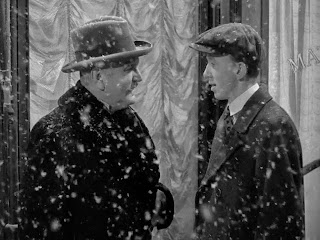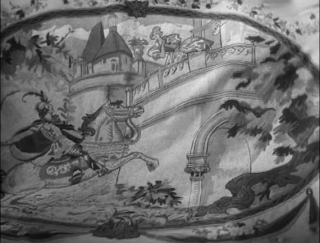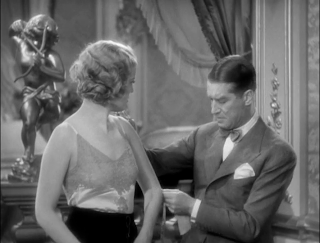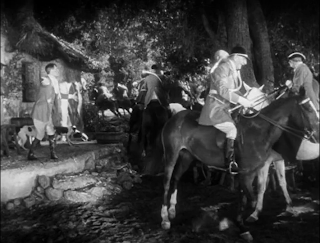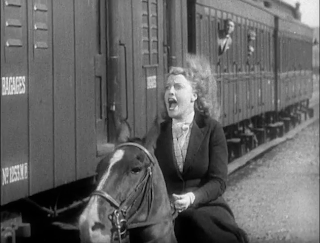I can't say I'll miss it. Nothing particularly bad happened to me or anyone close to me - I can't complain about that. But it's just been an odd disappointment, across the board. This blog has suffered, especially in the second half of the year - Gran't Overland campaign and the World Cup provided some mid-year fodder, but otherwise, man, have I been lazy about posting. I can't offer much for excuses - work has been a bear; I took a rather demanding class in the fall - but mostly, I have just been lazy. I might as well take the opportunity to pretend to make a resolution about that - back up over 100 a year! I will do it! I can! I should also try to write some movie posts - though I've been shockingly lazy about seeing movies this year too. Never mind writing about them. I need to get that up over 200 again - a reasonable, makable goal, that I can't seem to manage these days...
That's me. Out in the world - it's been a strange year. The country is not in the worse shape ever - the economy is better than it has been; we are managing to creep our way out of out bad wars. The government continues to spy on us; the revelations about the horrors perpetrated by our government during the 00s - torture, war crimes - seem to make no difference. No one is locking Dick Cheney away - or even pardoning him, which at least would let us put on record, maybe, that he needs to be pardoned, because he is a war criminal. Not just Cheney, but start with him. It's a strange world. It is very strange - the old adage, "it's the economy, stupid" didn't quite work this year - the Republicans won big in the elections, even with gas prices low, the economy keeping up, even a greater sense that the country ought to move left to fix its problems - raise minimum wages, reduce debt... It's really a simple lesson of course - people need to vote. There were protesters out today, again, protesting the Eric Garner and Michael Brown non-indictments - I heard some young fools complaining about them, and about the Occupy movement, saying they were just a bunch of pot-heads who got nothing done. Which - might not be totally fair: pot is legal in four states now, all in the last year or two. Minimum wages have been raised in a number of states and cities in the last couple years - not enough, and not nationally - but there has been movement. Occupy didn't do anything directly, but it's hard to dismiss the fact that it made economic reform a subject for discussion.
Though that is probably my point here: that political change has to happen at the ballot box. Protests are fine, but they are not going to change anything themselves - they have to be transformed into votes, votes into laws - or regulations - though laws are better. Unfortunately, this is a point that the Republicans seem to grasp more than the Democrats - the right more than the left. The fact is - the right comes out to vote, all the time, every time - so you get 40% turnout and you get Republican controlled congresses. When we get 60% turnout, we get Democrats. If we got 70% turnouts, we might get Democratic supermajorities. The Republican party gets it, I have to say - they vote; they know that they have to keep other people from voting - so they pursue policies to limit voting, pretty consistently... They work to make people think voting is irrelevant - though not their own people, who seem to show up anyway. I could go on about that a while.
But it creates a situation that is kind of depressing and hopeful at the same time. The GOP won this year - but they won a lot of very close races - despite being very successful at voter suppression, despite during horrifying amounts of money into the election... They did win in the face of economic recovery - though it's hard to get too excited about the recovery. People still don't have enough money - the whole thing seems very fragile, and very vulnerable, as long as wages stay low, corporate taxes and the higher tax brackets stay low, debt keeps rising (especially student debt.) Those things require the federal government and the federal government isn't going to do anything controlled by Republicans... But still: the numbers are against them. there are more Democratic voters than Republicans - the GOP is more and more converting itself explicitly into the party of racist white people - which is to say, older white people - so - they might just fade away.
All right. Politics. I should stop - though - there is more. The Garner and Brown stories (and other similar stories) have galvanized the country - made people pay attention to the continuing racism in American society. It's pulled the cover off things - the NY Police Department has managed to squander more good will in the last two weeks than you would imagine they could have. I don't know where that will go - they are very powerful, capable of making great trouble - but they are also demonstrating rather clearly the need to get police under control. Police need to be controlled by the civil authority. we have been lucky in this country - or,put another way, blessed, in having a military that has, for the most part, taken seriously the fact that they are under civilian control. They answer to the government - and while they might whine now and then, they generally do their duty. That has not always been the case for police - it hasn't been in the last couple weeks in New York. That has to stop. I don't know where this is going, to be honest - maybe we have started to wear off the deference to armed law that we have held since 9/11 - one has to hope. But it is going to take some votes to do it...
Votes. Comes down to votes.
All right: look at this - just like last year, this year end roundup degenerated into a political rant. Sad. I will leave you then with a film still - Walter and Hildy in His Girl Friday, getting ready to bring down the ward-heelers. My New Year's Eve movie marathon this year was The Front Page x2 - Milestone and Hawks. The 1931 film is an interesting one - more of the newspaper stuff, less of Walter/Hildy - and showing its age in odd ways. The sound (at least on the cheap DVD I have) is pretty bad; the camera work is quite remarkable. Milestone liked to move the camera around, and it spins and swoops around the room throughout the play - sometimes rather dizzyingly. It's also interesting for coming pretty close to the same rapid fire overlapping patter the Hawks films features - not quite so fast, but getting there. It's a neat film in itself. Though the Hawks is one of the great ones. The comedy of remarriage stuff picks the plot up another notch; the performers are as good as they come; and the improved production values make the whole thing crisp looking and sounding, which it needs. Great fun - a great way to ring out the old year.

And finally - the cat, claiming another kitchen appliance before I could even get it home. Horrible beast!











